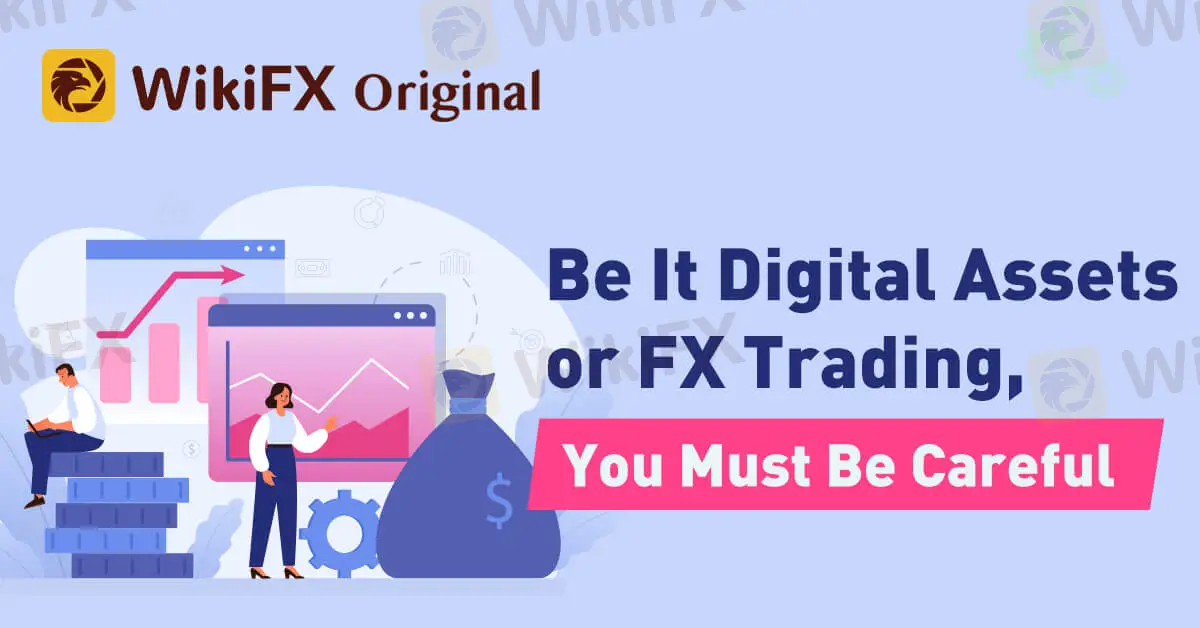简体中文
繁體中文
English
Pусский
日本語
ภาษาไทย
Tiếng Việt
Bahasa Indonesia
Español
हिन्दी
Filippiiniläinen
Français
Deutsch
Português
Türkçe
한국어
العربية
Be It Digital Assets or FX Trading, You Must Be Careful
Abstract:The recent freeze of Binance accounts has made many people question the trustworthiness of brokers and investment companies. This concern is not only valid in the industry of digital assets but also forex trading.

Binance faced backlash for freezing user accounts without explanation, leading to infuriated users intending to sue the company.
Binance tweeted that they had found some Australian users misclassified as 'wholesale investors' on Binance. According to the regulations in Australia, Binance had to notify these users and immediately close any derivative positions they had. Binance also clarified they contacted the affected users and would make compensation. Although Binance's response to this incident is yet to be given a final evaluation, it is undoubtedly a profound lesson for the cryptocurrency market and investors.


The recent freeze of Binance accounts has made many people question the trustworthiness of such services. Although countries around the globe are beginning to regulate cryptocurrency, investing in it still carries certain risks.
Freezing accounts or halting withdrawals are not rare in the world of forex trading. However, more often than not, that happens to victims of smaller-scaled brokers (note that Binance is the largest cryptocurrency platform in the world) and on a more regular basis. Most brokers make depositing money simple, but other brokers make it challenging when it comes time to withdraw it. Typical strategies include:
- requiring additional paperwork and identity checks that the broker did not make clear to you upon registration or account opening. Sometimes it can be challenging to secure those documents.
- withdrawals being frozen because of “security concerns” or “identification verification concerns,” with no effective way to contact support and lift the freeze.
- blocking your account entirely following your initial withdrawal request.
This scam is widespread and enables brokers to keep your money. Unfortunately, there may be no way to get the broker to return your money unless they are regulated and based in a nation that upholds those standards.
Remember to always verify a forex broker's regulatory status and perform thorough due diligence. A legitimate governing body ought to be in charge of overseeing it. Verify the licences for the platforms, then visit the licencing authority's website to confirm the licence's validity. You should confirm the legitimacy of the financial institution issuing the licence.
Reputable regulators include:
- FSC (Mauritius Financial Services Commission)
- FCA (UK Financial Conduct Authority)
- FSCA (South Africa Financial Sector Conduct Authority)
- SCB (Securities Commission of the Bahamas)
- IFSC (Belize International Financial Services Commission)
- CySEC (Cyprus Securities and Exchange Commission)
Download the free WikiFX mobile application on Google Play/App Store to make this process simple and time-efficient. WikiFX is a dedicated platform that houses information of over 43,000 brokers throughout the globe while working hand-in-hand with national regulators.
Every broker's license and regulatory information could be easily found in WikiFX's database. Here are some examples to illustrate how straightforward this process is:




Disclaimer:
The views in this article only represent the author's personal views, and do not constitute investment advice on this platform. This platform does not guarantee the accuracy, completeness and timeliness of the information in the article, and will not be liable for any loss caused by the use of or reliance on the information in the article.
Read more

April Fool's Day Scam Prevention Experience Collection
Share your “Forex Fraud Prevention Experience”, win WikiFX points and gold rewards!

How Will the Market React at a Crucial Turning Point?
Safe-haven assets like gold and U.S. Treasuries are surging, while equities face mounting pressure. As this pivotal moment approaches, how will the market react?

Gold Prices Climb Again – Have Investors Seized the Opportunity?
Gold prices have hit record highs for three consecutive days, with a remarkable 19% gain in the first quarter, marking the strongest quarterly performance since 1986. As market risk aversion rises, demand for gold has surged significantly.

Will natural disasters have an impact on the forex market?
The forex market is known for its rapid responses to global events, but the influence of natural disasters, such as earthquakes and typhoons, can be less straightforward. While headlines may scream about catastrophic damage and economic disruption, the long-term effects on currency values often depend on a blend of immediate shock and underlying economic fundamentals.
WikiFX Broker
Latest News
How Crypto Trading Transforms FX and CFD Brokerage Industry
FCA Warns Against 10 Unlicensed or Clone Firms
CySEC Warns Against 14 Unlicensed Investment Websites
Top Currency Pairs to Watch for Profit This Week - March 31, 2025
Will natural disasters have an impact on the forex market?
Philippines Deports 29 Indonesians Linked to Online Scam Syndicate in Manila
Exposing the Top 5 Scam Brokers of March 2025: A Closer Look by WikiFX
Gold Prices Climb Again – Have Investors Seized the Opportunity?
Webull Launches SMSF Investment Platform with Zero Fees
Australian Regulator Warns of Money Laundering and Fraud Risks in Crypto ATMs
Currency Calculator







